Chemistry

Dr. Francesco Paesani
PhD, Department of Chemistry Biochemistry
Francesco Paesani is currently the Kurt Shuler Faculty Scholar in the Department of Chemistry
and Biochemistry, and is affiliated with the Materials Science and Engineering graduate
program and the San Diego Supercomputer Center. He is a founding member of the Halicioǧlu
Data Science Institute. His research focuses on the development, implementation, and
application of many-body theories at the intersection of chemistry, physics, and computer
science for molecular simulations of complex systems from the gas to the condensed phase. He
was awarded the ACS OpenEye Outstanding Junior Faculty Award in Computational Chemistry
in 2014, the NSF CAREER Award in 2015, the ACS Early Career Award in Theoretical
Chemistry in 2016, the Legacy Lecture Award from UC San Diego student body in 2017, and
the Cozzarelli Prize from the National Academy of Sciences (2019). He served as the Chair of
the ACS Theoretical Chemistry Subdivision (2019). He currently serves as the Vice Chair of the
ACS Division of Physical Chemistry and as an associate editor for Science Advances.
Research Interests
-We are a theoretical chemistry group working at the intersection of quantum chemistry, statistical mechanics, and computer science. We are interested in developing new methods and software to predict the behavior of complex molecular systems at different length and time scales.
Primary Research Area
-Physical/Analytical Chemistry
Interdisciplinary interests
Computational and Theoretical
Materials
Biophysics
Computer Science

Dr. Paul Y. Cao
PhD, Department of Computer Science
Paul Cao is currently a continuing lecturer in the CSE department at UC San Diego. His
research area is in CS education and he is particularly interested in the broadening of
CS exposure and education in the K-12 domain. He has extensive teaching experience
in computing in both the college and K-12 levels. He received his PhD from Duke
University.
Project Description:
-Development of Scratch projects suitable for elementary school
students
-A large percentage of current CS education at the K-12 level focuses on the
development of child friendly coding projects using block-based programming
languages. The quality of projects varies drastically and the maintenance and updates
on these projects lack long-term support. In this project, we will investigate remixing
some of the most popular Scratch games and projects and focus on the fundamentals
of flow control, events handling, variables, and AI related topics. We will create a
repository these games with a remix plan. The primary advantage of remixing popular
games is strong student interest. And this project can be easily maintained and updated
with new popular games.

Dr. Debashis Sahoo
PhD, Pediatrics and Computer Science and Engineering
Debashis Sahoo received B.Tech. degree in Computer Science and Engineering from the
Indian Institute of Technology, Kharagpur, in 2000, and the M.S. and Ph.D. degrees in Electrical
Engineering from Stanford University, in 2003 and 2008, respectively. He is currently a joint
Associate Professor of Computer Science and Engineering and Pediatrics at the University of
California, San Diego. His research interests include analysis of biological systems and formal
verification of hardware designs. Dr. Sahoo pioneered identifying simple Boolean relationships
between gene expression values.
Project Interests:
Dr. Sahoo’s research has produced impacts in understanding several bi ological systems
including, B cell differentiation, colon cancer, bladder cancer, and prostate cancer. Among the
successes was Dr. Sahoo’s previous work where he identified the expression level of CDX2 as
a predictive biomarker for a favorable response to conventional chemotherapy among stage II
colon cancer patients (Dalerba, Sahoo, et al. NEJM 2016). Dr. Sahoo has received many grants
for his achievements, notable among them are the prestigious NIH Pathway to Independence
K99/R00 Award, DOD Prostate Cancer Training Award, and Bladder Cancer Advocacy Network
Young Investigator Award. He has continued his status as a highly accomplished researcher,
publishing in high-impact journals and receiving grants for his computational biology adventure.
Education
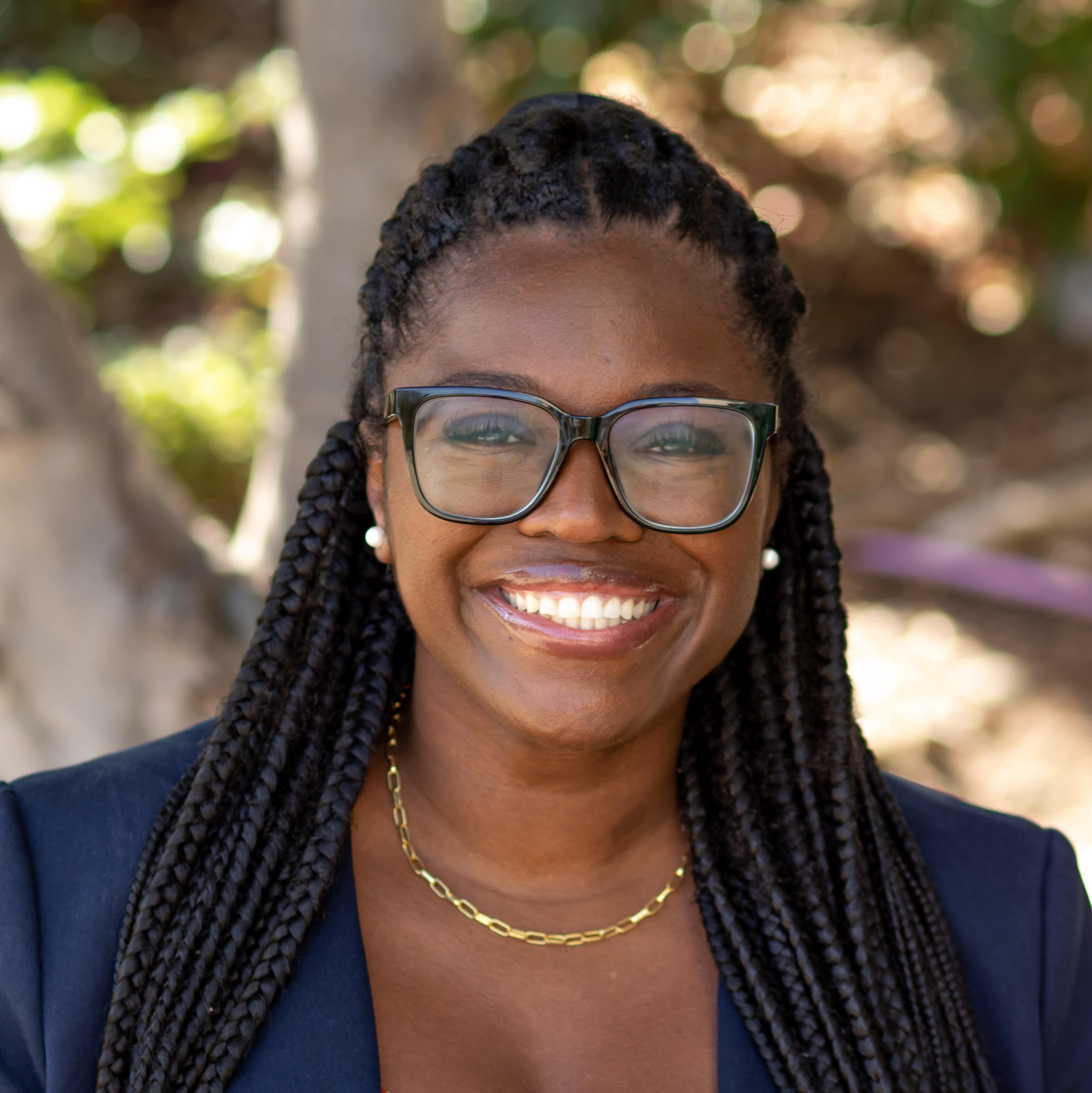
Dr. Shanelle Watkins
Director, Chancellor’s Associates Scholars Program
Shanelle Watkins (She/Her/Hers) serves as the Director of the Chancellor’s Associates Scholars Program (CASP). She is a student-centered educator with over 14 years of experience in the educational field at the high school, community college, and four-year university levels. A native of Southeast San Diego, Shanelle earned her Bachelor’s degree in Sociology from California State University San Marcos and her Master’s degree in Higher Education Leadership from the University of San Diego. Currently, Shanelle is a doctoral candidate in the Educational Leadership program at the University of California, San Diego. Her dissertation research is focused on the experiences of student leaders at Hispanic Serving Institutions. As a first-generation scholar herself, Shanelle is dedicated to empowering students to not only be college competitive, but college successful as well. With over 14 years of experience in the educational field, Shanelle has played an instrumental role in creating and executing a wide range of programs to enhance the academic success and leadership development of students at various levels between PK-16. She is a member of NASPA, AABHE, and Delta Sigma Theta Sorority, Incorporated.
Project Focus
The mentorship opportunity that mentees will have is to work with a college level administrator to learn the process of developing initiatives that equip underrepresented high school students with success skills for their higher education journeys. This experience combines program analysis, research, and peer mentorship coordination—providing participants with real-world skills while making a meaningful impact. They will gain insider knowledge of university scholarship programs, develop valuable research and presentation abilities, and create resources that will help future students navigate their college journeys. By the end of the project, students will have the skills to design sustainable solutions that address barriers to high education while building professional skills that will enhance their own academic and career prospects.
Halıcıoğlu Data Science Institute I
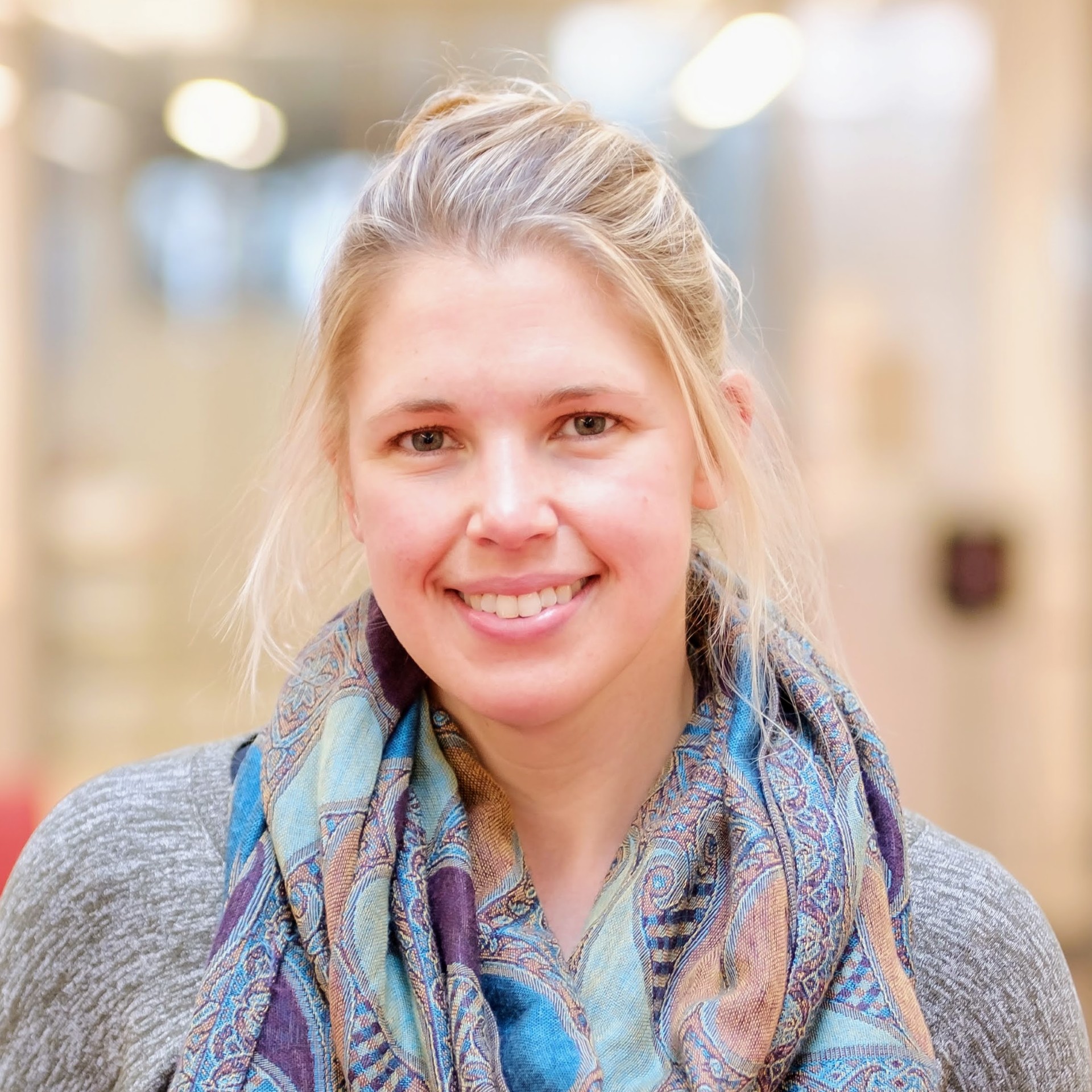
Dr. Angela Berti
Managing Director, TILOS AI Research Institute
With a PhD in astrophysics from UC San Diego, Angela Berti built a career at the intersection of scientific research, communication, and project management.
Research Focus
The Institute for Learning-enabled Optimization at Scale (TILOS) is an national artificial intelligence research institute headquartered at UC San Diego, in partnership with faculty at MIT, Yale, University of Pennsylvania, the University of Texas at Austin, and National University. TILOS research focuses on the intersection of artificial intelligence and optimization, with applications to computer chip design, communication networks, and robotics. TILOS researchers at UC San Diego are faculty affiliated with the Halıcıoğlu Data Science Institute and the departments of Computer Science and Engineering, Electrical and Computer Engineering, and Mathematics. Learn more about TILOS research areas at https://tilos.ai/research.
Health Sciences
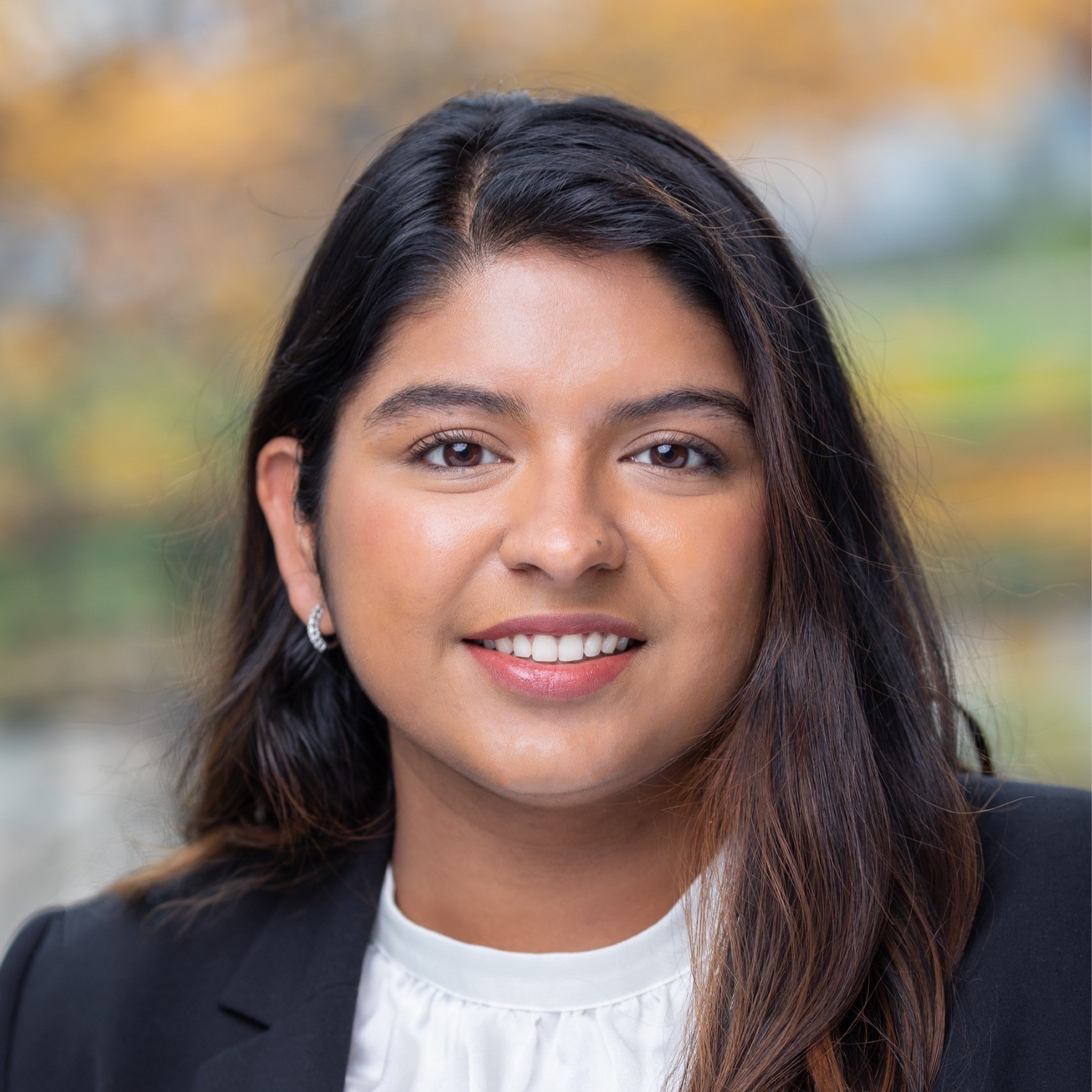
Muskaan Gupta
Strategy Manager
Muskaan joined UC San Diego Health as a Strategy Manager for Medicine Specialties, Cardiovascular services, and Behavioral Health services in July 2023. Prior to her role at UC San Diego Health, Muskaan worked as an administrative fellow at Cleveland Clinic in Cleveland, Ohio, where she led projects in health equity, service line development, and payor contract management. She hold a Bachelor’s degree in Biology from Loyola University Chicago, and also graduated from the University of Minnesota School of Public Health with a Master’s in Healthcare Administration. Muskaan is passionate about increasing access and addressing healthcare disparities for underserved communities.
Project Description
Research future Medi-Cal Insurance trends. Understand the impact to vulnerable populations (lower income, immigrants, and the LGBTQIA+ community). There is opportunity to mold this project to the student’s interest, but it will involve researching Medi-CAL in San Diego area, chronic disease management, and how to plan health care systems to care for underserved communities.
History

Dr. Christine Hunefeldt
Faculty, History
Christine Hunefeldt has been teaching for the History Department at UCSD since 1990. She received her Ph.D. in Ethnology, Americanistics, and History from the University of Bonn, Germany in 1982. Her research focuses on Latin American history with an emphasis on Andean history, the lives of women, indigenous populations and slaves. Currently her research is centered in the Amazon Basin and the virtual reconstruction of its history.
Level of Involvement:
- Providing the student with scholarly articles related to the student’s field of interest
- Allowing a student to come to the work/research site in order to learn how to gather data
IT Service

Alex Wu
Manager, Technical Platform Services, IT Services
Alex Wu is the manager of the Technical Platform Services team, supporting technical platforms as a service solution for document management, web content management, and mobile application development.
Project Description
That intern may participate in various areas of mobile applications development, including
prototyping, coding, testing, and design.
Level of Involvement:
- Providing the student with scholarly articles related to the student’s field of interest
- Allowing a student to come to the work/research site in order to learn how to gather data.
Mechanical Engineering
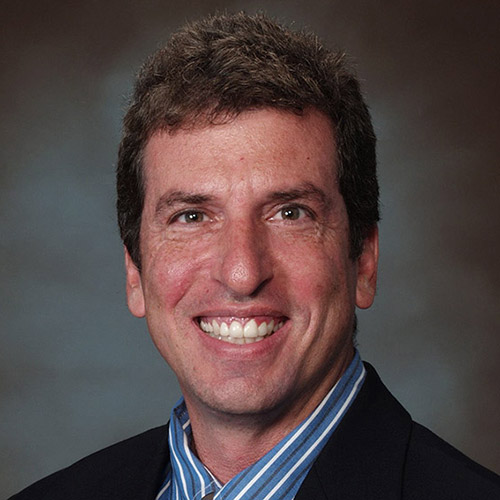
Dr. Jack Silberman
Lecurer, Jacobs School of Engineering
Jack Silberman has over 20 years of experience in automation and robotics. He started working in robotics while pursuing his B.S. in electrical engineering. Dr. Silberman did robotics post graduate work in England and holds a master’s degree from PUC-Rio in mechanical engineering and a Ph.D. from Carnegie Mellon University where his research was on mobile field robotics reliability. Dr. Silberman has worked in educational robotics, NASA sponsored mobile field robotics, semiconductor automation, biotech and medical devices. Currently, Dr. Silberman is the commercial QA area manager for Canada and Latin America with Abbott Diabetes Care (ADC), and a lecturer at UC San Diego in mechanical and aerospace engineering.
Research Focus
Introduction to Artificial Intelligence (AI) and ML (Machine Learning) on the Edge
The Introduction to AI and ML on the Edge is an interactive, project-based program where students collaborate in teams of two to explore and apply AI and ML techniques using embedded systems and AI accelerators. Participants will receive specialized AI hardware to work with throughout the program, along with access to the UC San Diego Supercomputer Center for advanced AI model training and computation.
In the initial phase of the program, students will learn how to create and deploy AI and ML models tailored to the provided hardware. Following this, students will propose and implement a project that showcases their newfound skills, pushing the boundaries of what can be achieved with the hardware. The program will focus on Artificial Neural Networks, Computer Vision, and, depending on student progress, may also explore Large Language Models.
Nanoengineering

Dr. Ping Liu
Associate Professor, Nanoengineering
Prior to joining the Jacobs School faculty, Professor Ping Liu has been a Program Director at the Advanced Research Projects Agency – Energy (ARPA-E) since 2012, where he initiated and managed research programs in energy storage for electric vehicles and thermal management technologies to improve building energy efficiency. He was the manager of the Energy Technology Department at HRL Laboratories and was a research staff member with the National Renewable Energy Laboratory. He received his Ph.D. in Chemistry from Fudan University in China 1995. He was a Distinguished Inventor in multiple years at HRL and won an R&D 100 award in 2009 for a battery technology developed at NREL. Liu has published over 70 peer-reviewed papers and has been issued 36 US patents in the broad areas of batteries, fuel cells, sensors and actuators.
Research Focus:
Professor Liu’s research focuses on designing materials and architectures for electrochemical energy conversion and storage applications. One area of interest is studying the mechanical behavior of rechargeable batteries in the context of optimization as either solid-state actuators or as long- life electrochemical energy storage devices. A second area is synthesizing nanostructured materials and probing the effect of composition and size on the thermodynamics and kinetics when they are used as battery materials. A third area is designing new architectures for energy storage devices with enhanced energy density while maintain long service life. Diverse approaches including new electrolyte development, interfacial structure design, and battery cell configuration engineering are employed.
Level of Involvement:
- Emailing a student or talking to a student on the phone
- Providing the student with scholarly articles related to the student’s field of interest
- Allowing a student to come to the work/research site in order to learn how to gather data
Neuroscience

Dr. Chengbiao Wu
Associate Professor, Department of Neurosciences
Dr. Wu received his undergraduate education from Lanzhou University, Gansu, China. He obtained his MSc and PhD from Queen’s University, Kingston, Ontario, Canada. He was later trained at NIH, UT South Western Medical Center and Stanford University. He joined the faculty of UCSD Neurosciences in 2009.
Research Interest
Dr. Wu is currently an Associate Professor in the Department of Neurosciences, University of California San Diego School of Medicine. His research is focused on signaling and trafficking of neurotrophic factors in health and in neurodegenerative diseases. In particular, his group has been a leader in studying axonal transport. Axons are the primary target in many neurodegenerative diseases associated with both the central and peripheral nervous system. Dysfunction and degeneration of axons i.e. axonopathy, is often the earliest sign of neurodegeneration. We use molecular, cellular, biochemical, and imaging methods to investigate the cellular and molecular mechanisms of axonopathy and neurodegeneration in Alzheimer’s disease (AD), Tauopathies, Huntington’s disease (HD), and Parkinson’s disease (PD). Our ultimate goal is to understand how impairment of axonal functions leads to neurodegeneration in these diseases. In addition, he has been investigating the molecular mechanisms underpinning peripheral sensory neuropathy such as Charcot-Marie-Tooth 2B (CMT2B) and Hereditary Sensory and Autonomic Neuropathy V associated with Swedish NGF mutation. For more of Dr. Wu’s publications, please see: https://www.ncbi.nlm.nih.gov/myncbi/browse/collection
Level of Involvement:
- Emailing a student or talking to a student on the phone
- Providing the student with scholarly articles related to the student’s field of interest
- Allowing a student to come to the work/research site in order to learn how to gather data
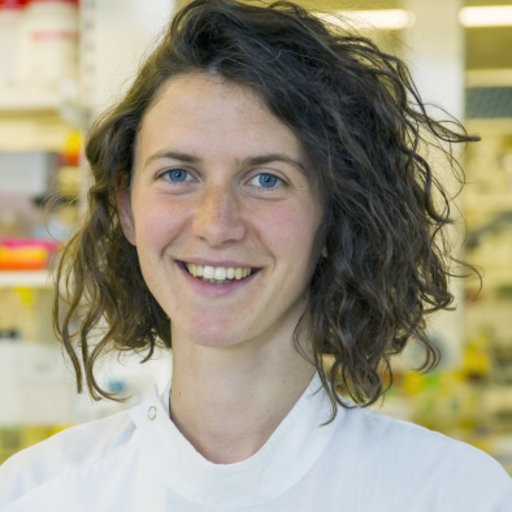
Dr. Silvia Vicenzi
Postdoctoral Researcher, Department of Neuroscience
Silvia was born in Italy and lived in the UK, Sweden, Australia and the US, following her passion for science. Silvia first obtained her Bachelor Degree in Biotechnology from the University of Trento with an experimental thesis in developmental biology in Italy and an internship in cancer biology in the UK. She then completed a Master of Molecular Medicine in Sweden from Uppsala University and recently (August 2021) obtained her Ph.D. from the University of Tasmania, Australia.
Silvia is also a motivated advocate for Equity, Diversity and Inclusion at UCSD, intending to make the university a safe place accessible to everyone.
Research Interest
Dr. Vicenzi studies the molecular mechanisms that underlie the onset of human disorders ranging from neuroscience, cancer and aging. Her expertise is in molecular biology, in vitro assays, in vivo models, microscopy and signaling mechanisms.
Level of Involvement:
- Allowing a student to come to the work/research site in order to learn how to gather data
Physics

Dr. Mark Paddock
Faculty, Physics
I am currently a teaching faculty at the University of California, San Diego. I had spent nearly 25 years as a Research Scientist studying Biological Physics. In particular, I spent over a decade researching basic chemical properties of photosynthetic reaction centers. Subsequently I transferred my experiences to researching mitochondrial proteins of potential cancer related interests. Most recently, I worked on circadian rhythms systems prior to switching my interest to education. I am currently a teaching faculty focusing on teaching physics to non-physics majors with an emphasis on life sciences.
I have also expanded my involvement in community outreach working with the Reuben H Fleet Science Center by developing and supplying physics demonstrations for some of their special events. I have been involved in mentoring students from the MARC and STARS programs in research projects. I am currently involved in developing and teaching a special Physics 2A course for a Chemistry Academy focused on assisting.
Research Focus:
Research focus centers on Biological Physics including Photosynthesis, Circadian Rhythms, Mitochondrial Proteins.
Level of Involvement:
- Emailing a student or talking to a student on the phone
- Providing the student with scholarly articles related to the student’s field of interest
- Allowing a student to come to the work/research site in order to learn how to gather data
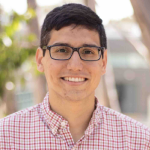
Dr. Javier Duarte
Faculty, Department of Physics
Javier Duarte is an Assistant Professor of Physics at the University of California San Diego and a member of the CMS experiment at the CERN Large Hadron Collider (LHC). Originally from Colombia and Venezuela, he grew up in New York and received his B.S. in Physics and Mathematics from MIT in 2010 and his Ph.D. in Physics at Caltech in 2016. Before joining UCSD, he was a Lederman postdoctoral fellow at Fermilab. His main research interests are measurements of the Higgs boson, searches for exotic new physics, real-time AI, and deep learning for particle physics. Prof. Duarte has received a DOE Early Career Award for real-time AI for particle reconstruction and Higgs physics.
Research Focus:
Our lab is interested in LHC data analysis of Higs boson and exotic new physics, hardware-accelerated machine learning, geometric deep learning for particle physics, and diversity, inclusion, and social justice in physics.
Level of Involvement:
- Allowing a student to come to the work/research site in order to learn how to gather data
San Diego Supercomputer Center/Moores Cancer Center

Igor Tsigelny
Assistant Professor, Department of Physics
Igor F. Tsigelny is a Research Professor at the Department of Neurosciences, San Diego Supercomputer Center, and Moores Cancer Center. He is a world-known expert in structural biology, molecular modeling, bioinformatics, and structure-based drug design. He received his M.S. in Electrical Engineering from the Technical University in Lviv (Ukraine). He has a Ph. D. in Physics of Polymers from the Academy of Sciences of Ukraine. He was a postdoctoral fellow in the University of California in the laboratory of Susan S. Taylor from 1992-1995. Dr. Tsigelny is the author of over 200 papers in scientific journals including the Nature and Science groups of journals, and Proceedings of National Academy of Sciences of the USA. He had published and edited 4 scientific books. The book “Protein Structure Prediction: Bioinformatic Approach” that he edited, has been called “The Bible of all current prediction techniques” by BioPlanet Bioinformatics Forums. He is a member of editorial boards of over 10 scientific journals. He has around 15 existing and pending patents. Three drug-candidates developed by Dr. Tsigelny for treatment of Parkinson’s disease, brain cancer, and hypertension are licensed by UCSD to pharmaceutical companies and are in various stages of development His computational study of molecular mechanisms of Parkinson’s disease has been included in the US Department of Energy publication “Decade of Discovery” where the best computational studies of the decade 1999-2009 have been described.
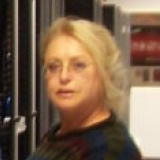
Dr. Valentina Kouznetsova
Project Scientist, San Diego Supercomputer Center
I work for the San Diego Supercomputer Center and the Moores Cancer Center of University of California at San Diego.
Research Interest:
My research interests include Computer-Based Drug Design, Metabolomics, Cheminformatics, Bioinformatics, Computational Structural Biology, Gene Networks Analysis, System Biology, Data Mining, Knowledge Discovery, Visualization, and Image and Morphometric Analyses.I focus on pharmacophore development and drug design; protein modeling and simulations; microarray data processing and analysis; pathway and gene-network analysis, development of metabolic markers for cancer and other diseases diagnostics. Recently I proposed a new method of pharmacophore hypotheses generation for one of the most difficult problems in pharmacophore-based drug design—protein interface inhibitors. My strategy was proved with a computational design of the OLIG2–E47 transcription factors (TFs) interface inhibitor. This concept leads to the creation of new drugs for cure of brain cancer. One of my significant works was time-series microarray analysis of kidney gene expression using SOMs and reversed Tsallis entropy that led understanding of kidney organogenesis The analysis revealed distinct transitions in specific days of kidney development and paved the road to development of targeted medications that will affect the TFs in specific day of organ development. This work was published in Science Signaling journal.In another significant work published in Genes, Brain and Behavior this approach was applied to brain development. The methods were extended with TF network and pathway analysis that allowed finding specific TFs and networks for drug intervention in cure of mental disorders as ASD and schizophrenia. I use the concepts outlined in this work for selection of target TFs for drug design.Another area of my interest is metabolomics for cancer cure.I work in collaboration with biochemists, biologists, and medical researchers from different laboratories and consult them in drug design, planning experiments, analysis and comparison of biological data, information theory, and other fields of computer engineering.



